QuestionWe got our cat from a private shelter about eight months ago. We took her to a vet for a checkup and he said she needed her teeth cleaned. Her breath got better, but it is still very strong. Sometimes when she is on my lap I have to get up since her breath is so bad. Any ideas? I used to have an outside cat (this one is inside only) and the outside cats breath was never this bad and she never had her teeth cleaned. Thanks.
AnswerHi Glenn. You should have her checked by the vet again. There are many common causes of bad breath in cats, including:
Dental disease - some cats suffer from a chronic inflammation of the soft tissues of the mouth, called stomatitis. Antibiotics are usually needed to combat infection that tends to come along with this condition. Ultimately, removing most or all of the teeth is the only cure, since the roots of the teeth appear to be the cause of the disease.
Inflammatory Bowel Disease - if she vomits, has gas or has dairrhea often, she may be suffering from this serious disease. If not treated, it can lead to malnutrition, cancer and infection and failure of other organs like the kidneys and liver.
Kidney failure - very common in cats, especially those over 12, but possible in cats of any age
Diabetes - extremely common in cats over ten, but also possible in cats of any age
Parasites, such as worms or protozoan infection which live in the gastrointestinal tract
Upper respiratory problems, such as sinusitis, nasal polyps or nose/throat infections. The two viral illnesses which cause the worst breath are calici (causes a fishy smell) and herpes (causes an odor of decay). Both of these can cause flare ups that last for a long time, especially if an antibiotic is not given to get rid of bacterial infections that often coincide.
Diet. Often, an indoor/outdoor cat has better oral health than an indoor-only cat who receives the same amount of oral care. That's because outdoor cats usually hunt. And when they gnaw on the bones of their prey, it removes plaque buildup from the teeth, thus reducing tartar and gingivitis. Although controversial, I have no problem recommending giving your kitty a raw chicken wing tip to chew on/eat once or twice a week to get rid of tartar if she's interested. It's much more efficient than feeding hard food or tartar control treats. Don't worry - cats are meant to eat raw meat and bones! Raw bones do not splinter and don't pose a choking or perforation hazard, and cats are resistant to bacteria like salmonella and e. coli. Of course, use sense and feed only fresh meat. Discard uneaten portions after two hours, and disinfect your hands after handling the meat for your own safety. For more information on the safety of raw feeding, you may want to research a prey model diet or the Bones and Raw Foods diet (BARF diet).

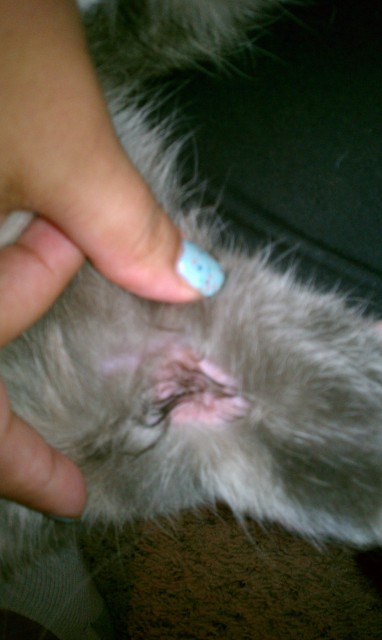 Small bald spot?
Question
Chibi arm
I was playing with my almost
Small bald spot?
Question
Chibi arm
I was playing with my almost
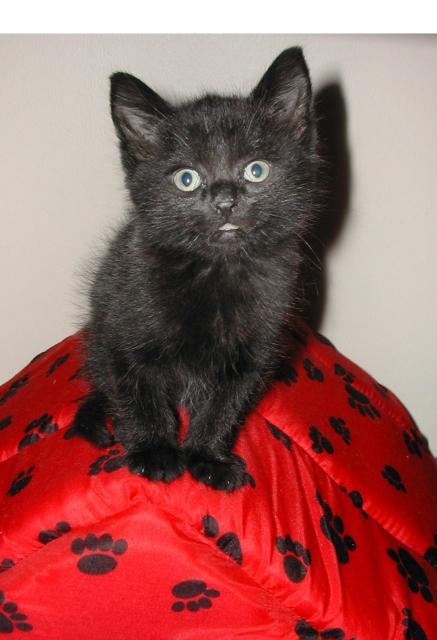 kittens nails
QuestionQUESTION: Hi Pati,
Its me again Xris. I seek y
kittens nails
QuestionQUESTION: Hi Pati,
Its me again Xris. I seek y
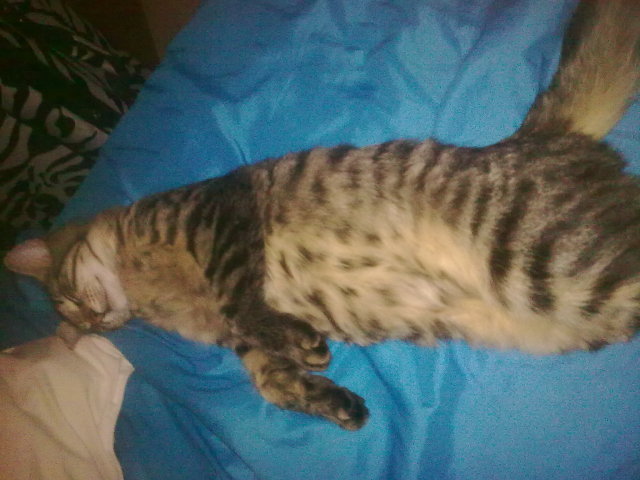 cat in labour
Questionxena last night
QUESTION: Hi!
I have a
cat in labour
Questionxena last night
QUESTION: Hi!
I have a
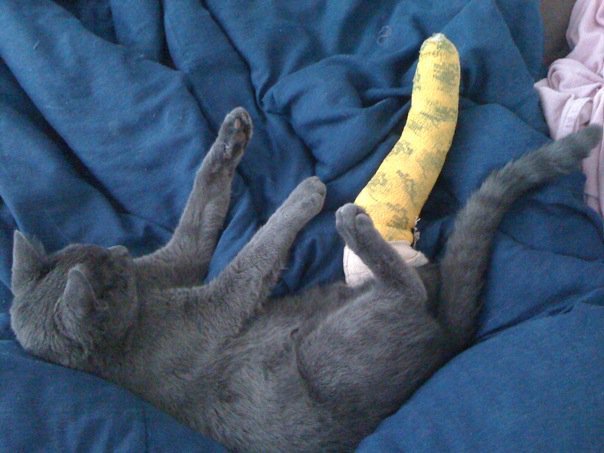 Cats broken leg and aggression
Question
Little Scout
Hello, I wanted to pose a query t
Cats broken leg and aggression
Question
Little Scout
Hello, I wanted to pose a query t
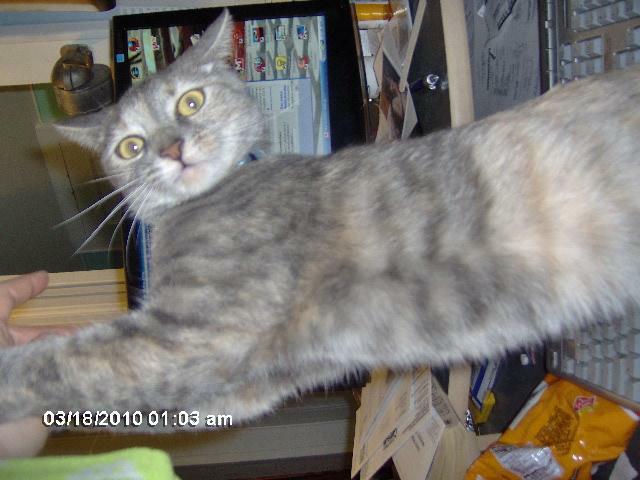 my cat is REALLY long, like a weasel!
QuestionQUESTION: Im hoping you can help me identify my
my cat is REALLY long, like a weasel!
QuestionQUESTION: Im hoping you can help me identify my